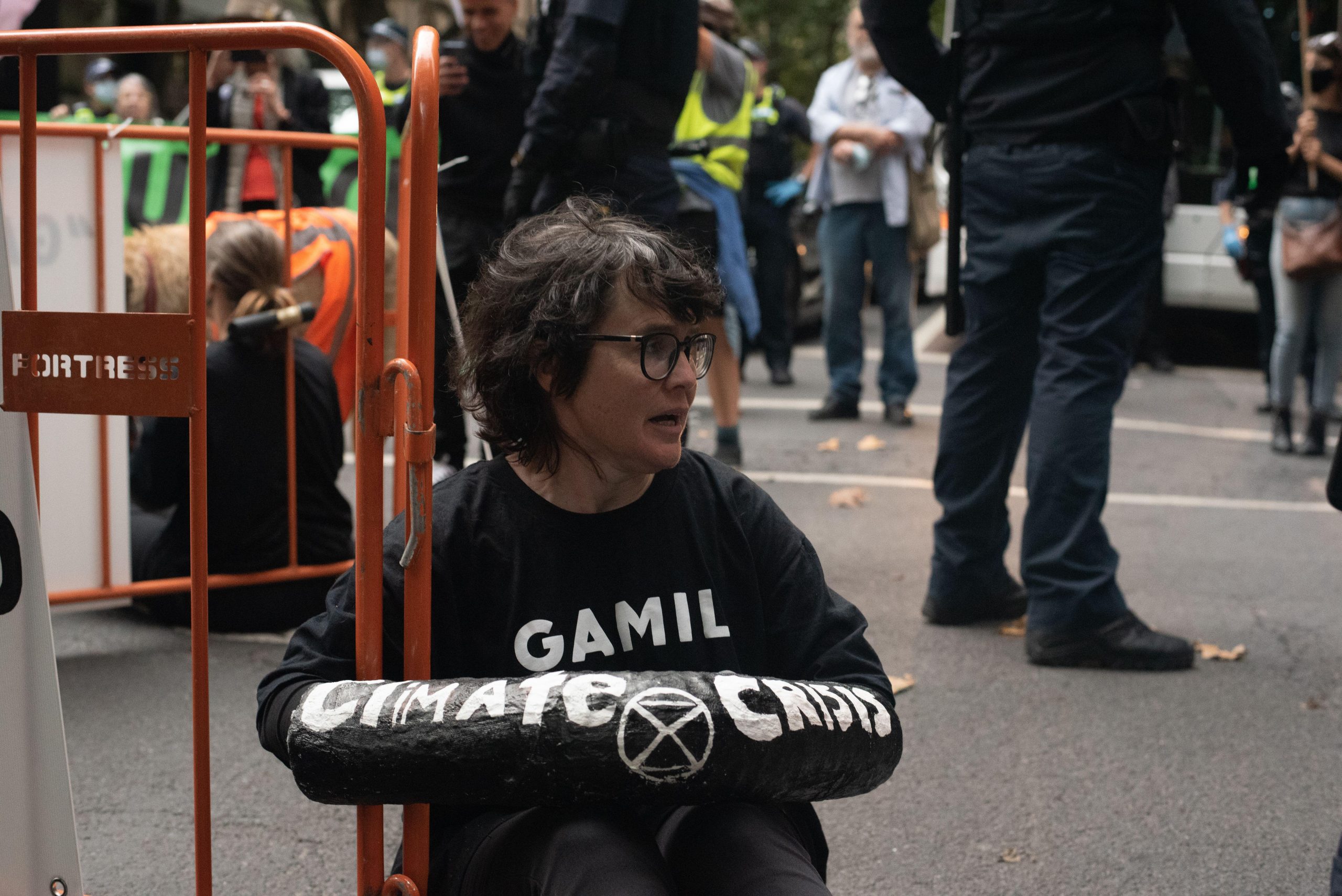 As steps are taken to examine standards in British journalism, Index on Censorship looks back over 20 years, when politicians and the public were making very similar demands. David McKie’s 1990 account of public revulsion and political outrage shows just how little things have changed
As steps are taken to examine standards in British journalism, Index on Censorship looks back over 20 years, when politicians and the public were making very similar demands. David McKie’s 1990 account of public revulsion and political outrage shows just how little things have changed
There has never been much of a place in the great warm heart of what used to be known as Fleet Street for the concept of self-regulation. Whether it’s teachers, lawyers, doctors or unions, the response is much the same. No use relying on this lot to put their house in order! Time the government acted! End this cosy conspiracy!
There is, however, one area of national life in Britain where this doctrine does not apply. That area is Fleet Street’s back yard. Here external intervention is out of the question: only self-regulation will do. Over the past few months, the industry has hurled itself into what, by previous standards, amounts to a positive orgy of self-control. The motive is plain. The national press is pledging itself to put its house in order because of explicit threats from a government, which it largely supports, to act if it fails to do so. The editors and publishers of the national press, the Home Office Minister of State Tim Renton told the House of Commons a year ago, were on probation. If they wouldn’t curb their excesses, Parliament would.
Journalism “infiltrated by rent boys, spurned lovers and smear artists”
Mr Renton’s threat was made in two contexts, one general, one specific. The general context was the steady decline in standards of Fleet Street honesty, decency and what old-fashioned Tory MPs still talk of as “honour”, and the evidence of public revulsion at some newspaper practices. That revulsion, of course, is limited: the tabloids which give such offence still sell, though not in the numbers they did. But it’s there in a wealth of ways, from the low reputation of journalists to the thumping damages ordered in a string of libel cases. The message of these awards is clear. To the ladies and gentlemen of the jury, the national press in England is hopelessly out of control, careless about the truth or falsehood of the stories it prints, careless of the grievous damage it does to people’s lives. It deserves to be thrashed; and they will employ the power that is temporarily in their hands to thrash it.
The specific context was a pair of private members’ bills in the 1988-9 session: the Protection of Privacy Bill introduced by John Browne (Conservative, Winchester), the fourth such bill in 25 years; and a bill introduced by Tony Worthington (Labour, Clydebank and Milngavie) to create a statutory right of reply, policed by a Press Commission. Despite their imperfections, each would have got to the statute book if MPs had voted the way they felt. The Conservative Jonathan Aitken, a sprig of the house of Beaverbrook, summed that up in the most crushing and effective of all the speeches in the Commons debates. “There is a cancer gnawing at the heart of the British press,” he said. “At the lower end of the tabloid market, journalism has been replaced by voyeurism. The reporters’ profession has been infiltrated by a seedy stream of rent boys, pimps, bimbos, spurned lovers, smear artists bearing grudges, prostitutes and perjurers. That is the force that makes constituents say to members of Parliament: ‘Get on and do something about it.'”
Melodramatic? Not really, given the catalogue of abuse and malpractice that unravelled here. The tabloids had made the mistake of attacking two groups whose interests MPs hold particularly at heart; themselves and the Royal Family. A story in the Sun about letters written to the Princess Royal; an attempt, again by the Sun, foiled by the intervention of Her Majesty’s lawyers, to run a footman’s confessions; a string of stories around the time of the 1987 election about the purported love lives of leading politicians and party organisers (for some of which these newspapers were later to pay out large sums); and then, on a wider canvas, there was the Sun’s so-called expose of the musician Elton John, based on the uncorroborated testimony of a rent boy who later disowned it, that cost them £1million, a sum no doubt offset by the lavish attendant publicity (their pay-out led the paper under the cheery headline “Sorry, Elton”); or the News of the World‘s pursuit of the actor David Scarboro, for which the Press Council censured it after Scarboro’s suicide.
Some of the cases paraded went back further: the interview which appeared in the Sun with a Falklands widow, for instance (she had never spoken a word to them, but they constructed her feelings by asking office secretaries how they would have felt in her shoes); the tales of gross excess after the Lockerbie air crash and Hillsborough football stadium disaster; of posses of reporters camped out on the doorsteps of people living with tragedy; of journalists who broke down the walls of the intensive care unit which housed the captain of the Herald of Free Enterprise ferry and who later invaded his home and put microphones in his car. Anyone who follows these things could supply plenty more.
Both bills failed; and given the way they were drafted, properly so. But they did not fall on merit. They fell because government supporters talked one out (Right of Reply) and would have done the same to the second had the sponsor not withdrawn it. But they did have an effect. In the midst of a jocular speech to a giggling House, in which a small group of Tory MPs had amused themselves for several hours with a witless filibuster, Mr Renton suddenly turned very serious. Announcing his sentence of probation (capital punishment, they were no doubt thinking up in the public gallery, might have been more-appropriate), the minister warned that editors and publishers had a year to clean up their act: “If they succeed — I hope they will — effective, quick and fair self-regulation that protects the rights of the private individual and the small man who cannot look after himself will remain the order of the day. That will happen without statutory control of the press. If not, Parliament will certainly return to the issue.” And he also announced an inquiry into the law on privacy — since carried out by David Calcutt QC. (The main points of the Calcutt Committee report, published 21 June 1990:1) Independent Press Complaints Commission; 2)Press Council disbanded; code of conduct; 3) No laws on right of reply and privacy; 4) Protection from media intrusion in home; 5) Threat of statutory Press Complaints Tribunal.)
The myth of self-regulation
Some MPs were sceptical. Putting the British tabloids on probation, said Jonathan Aitken, was like putting Jack the Ripper or the Boston Strangler on probation. He saw little sign that the government was ready to act: all it had done so far was to recommend a knighthood for the editor under whom the Sun had set out on this path. Others noted the time scale: no action, it seemed, this side of a general election (then expected in 1991) in which Mrs Thatcher would want to count, as before, on the absolute and uncritical support of the mass-circulating Sun.
Still, the threat was there, and pointing directly at the two groups of people whom the Commons blamed for these infamies: the editors and, even more on any rational scale of things, the proprietors. They were well aware that the present Fleet Street engine of self-regulation was a thing of gauze and gossamer: a Press Council part professional and part lay, ludicrously under-funded, boycotted for its failures by the principal journalists’ union, and treated on occasion with contempt by those it dared to criticise. The best that could be said for the Press Council was that Louis Blom-Cooper took over as chairman: a man with one foot in the law and the other in newspapers, who would surely not have taken the job unless he was wholly clear that he could give the Council authority and bite. Now it faces extinction.
The chairman had laid plans for a Press Council perestroika. But led by Andreas Whittam-Smith, the Independent’s editor-proprietor/philosopher-king, they set to work on a code of conduct designed to remove the offence which might provoke condign punishment. After much anguished wrangling they produced a code endorsed by all the nationals except the Financial Times (and excluding of course the Sunday Sport which, unlike some tabloid rivals, lies openly, just for the fun of it, and not with the hope of escaping detection). They also agreed to appoint representatives to guard their readers’ interests. (Some were to choose outsiders — a distinguished lawyer, a former ombudsman, the chairman’s cousin; others nominated senior members of their staffs.) In doing all this they signalled their commitment ahead of Press Council action. The Council later published a fuller code of its own: it drew on the editors’ code as a piece of evidence.
This brought the tablets of self-regulation to three. There were also accumulated judgments of the Press Council down the years, many largely ignored (“The publication of information about the private lives or concerns of individuals without their consent is only acceptable if there is a legitimate public interest overriding the right of privacy” — April 1976); but these were subsumed in its code. The third guiding light is the National Union of Journalists’ Code of Conduct, which declares, inter alia, that “a journalist has a duty to maintain the highest professional and ethical standards”; that he or she must avoid falsification by distortion, selection or misrepresentation (tell that to the people who provided the coverage of the 3 May local elections in the Daily Mail); and that a journalist shall obtain information only by straightforward means and refrain from intrusion into private grief and distress, subject only to the overriding consideration of public interest. Few journalists know what this code contains. Hardly any tabloid reporter would risk the wrath of his editors and proprietors by sticking rigorously to it.
Not the dawn of an enlightened era
So why believe that the present bout of self-regulation will serve us any better? First, perhaps, because it’s got to, if we’re to be spared, as all the newspapers, upmarket and down, fervently hope, increasing dictation by government of what we can and cannot print (though some newspapers gleefully back such intervention when this government seeks to deploy it against the broadcast media). Also because the editors’ code is all their own work, not something imposed by others, and that gives them some stake in seeing that it succeeds. But most of all because the key to a better regime actually lies in very few hands. It lies with the proprietors: which means Rupert Murdoch (the Sun and the News of the World), Robert Maxwell (the Mirror papers and the People) and Lord Stevens (the Daily Star). In a violently competitive market, editors need to be sure that they won’t risk their necks by steering clear of the gutter. Mr Maxwell has recently sacked an editor, Wendy Henry, for the sort of offence which he clearly rates at the top of the first division of journalistic atrocity: a snatched picture of one of the royal princes urinating against a tree.
So here are some forecasts. The new codes of conduct will pitch standards up a bit, though by nothing like enough to meet the tests of honesty and decency to which they aspire, and by nothing like enough to staunch the flow of complaints by and to MPs. (The tabloids’ coverage of the Strangeways prison riot hardly suggests the start of a new and enlightened era). A Conservative government will resist the urge to legislate, but may yet be pushed over the edge; a Labour government, with fewer friends in Fleet Street, would feel much more impelled to act, though not perhaps in its early days in power. The reputation of journalists will continue to decline, and so will the standing of newspapers (all newspapers, deserving and undeserving alike). Which will make it all the easier for the present administration, while declaring with Mr Renton that “‘we cannot have a free society without a free press”, to continue its work of whittling down press freedom — while omitting to repair the defects of legislation which, though purporting to protect the right of the press to pursue the public interest, is in practice (see the Goodwin case, Index on Censorship, 1990) failing to do so. And the public simply won’t care. So what? it will say. Look at the way they behave. If you want my views on the subject; well, speaking perfectly frankly, the bastards had it coming to them.
David McKie joined the Guardian in 1965, working as a political reporter, columnist and editor. At the time of publication, he was Deputy Editor.
This article appeared in Index on Censorship magazine, 7/1990
To subscribe to the magazine, click here












